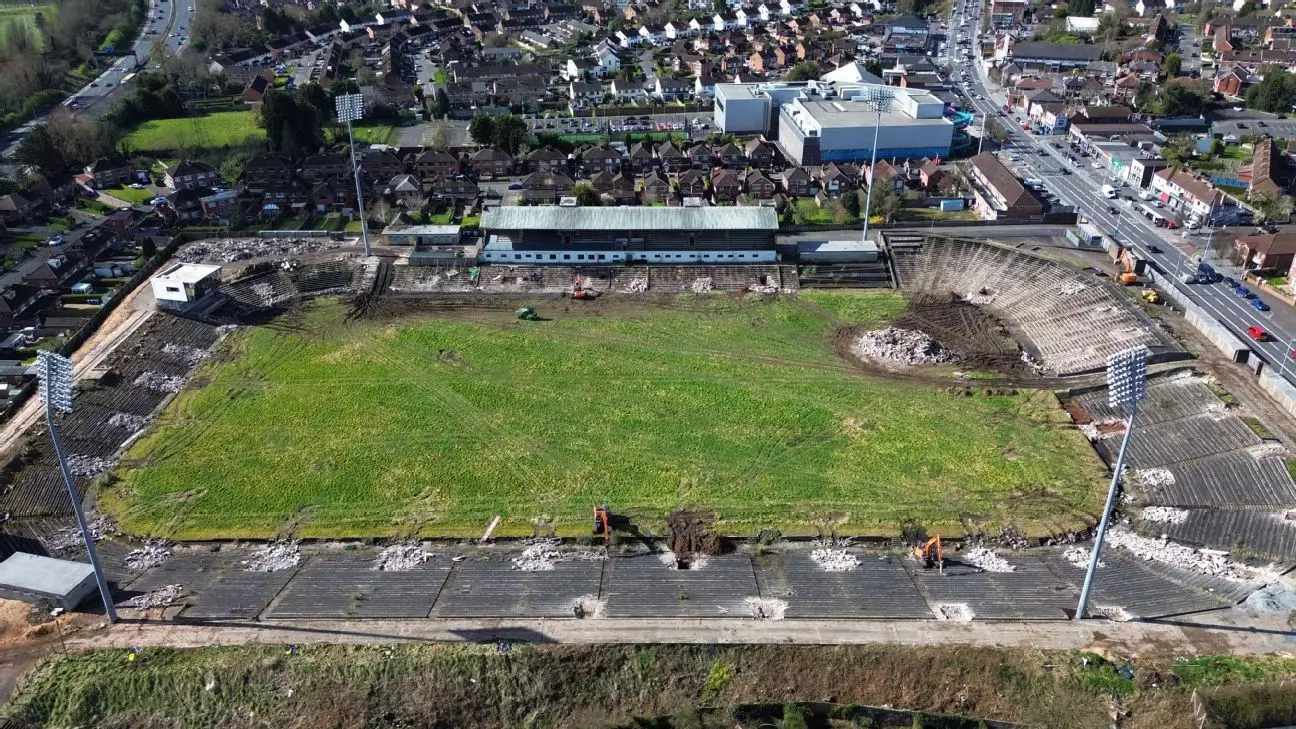The recent decision by the UK government to withdraw funding for Casement Park’s reconstruction marks a significant blow to Northern Ireland’s aspirations to host matches in the highly anticipated Euro 2028 tournament. Originally designated as one of the facilities for this prestigious event, Casement Park’s future now appears grim following the government’s announcement. The dramatic escalation in construction costs, skyrocketing from an initial estimate of £180 million to a staggering £400 million, prompted this shift in financial support. In assessing the situation, it becomes clear that economic feasibility is a key factor influencing national investments in sporting infrastructure.
The suspension of backing for Casement Park raises profound questions about Northern Ireland’s representation within the broader UK-Ireland Euro 2028 bid. As the only venue planned in Northern Ireland, its withdrawal not only limits local participation but also significantly diminishes the visibility and pride associated with hosting a global tournament. Windsor Park, which has historically carried the torch for Northern Irish football, could not meet the capacity requirements set forth by UEFA. Consequently, the potential gaming environment in Northern Ireland has been severely compromised, suggesting a missed opportunity for the region to showcase its culture and hospitality on an international stage.
Repercussions of the Decision
This controversial decision will compel UEFA to redistribute the five matches initially assigned to Belfast, likely moving them to larger venues in England, Scotland, Wales, or the Republic of Ireland. The implications stretch beyond the immediate logistical concerns; economically, hosting a major event like Euro 2028 has the potential to invigorate local businesses, create jobs, and enhance tourism. Without the games, Northern Ireland risks losing out on these benefits at a time when many regions are still recovering from economic challenges exacerbated by the pandemic.
In their communication, Northern Ireland Secretary Hilary Benn and UK Sports Minister Lisa Nandy cited concerns around a timely completion of the stadium as well as the ballooning costs as reasons for the UK government’s withdrawal. Their letter highlighted a tragic irony: just moments before a celebration of sporting unity, the reality of fiscal constraints illuminates a fracture within the united front of the UK-Ireland bid. What remains to be seen is how other stakeholders—particularly the Republic of Ireland government and the Gaelic Athletic Association—will respond to this blow, and whether they can pursue alternative funding or solutions.
Conclusion: A Defining Moment for Northern Ireland
Northern Ireland stands at a crossroads, where the withdrawal of Euro 2028 matches is not merely a sporting disappointment but a reflection of broader systemic challenges. The inability to secure funding reveals vulnerabilities within regional sporting infrastructures and calls for more robust financial strategies for future developments. In navigating this setback, it is pivotal for Northern Ireland to recalibrate its approach, emphasizing collaboration among various government entities, local organizations, and potential investors. The hope rests not only in upcoming sports events but also in successfully rejuvenating the spirit of community pride and resilience that defines the region.

